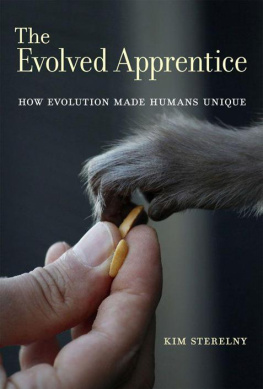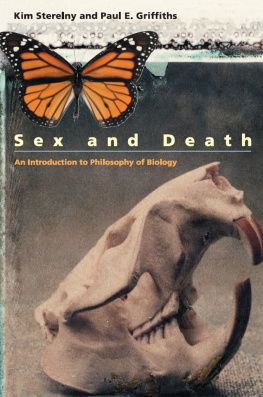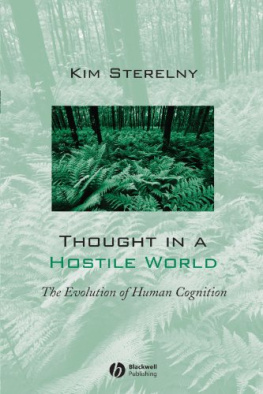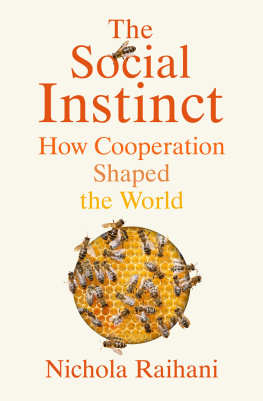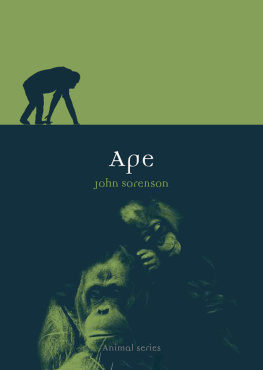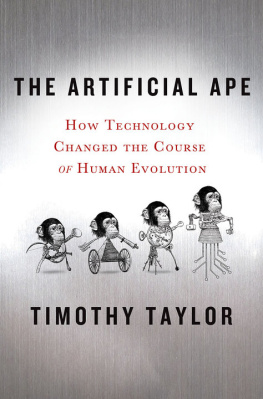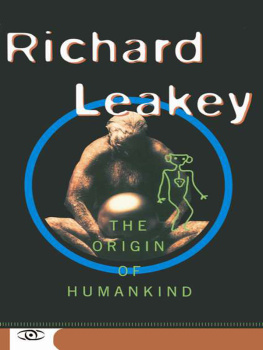The Evolved Apprentice
The Jean Nicod Lectures
Francois Recanati, editor
The Elm and the Expert: Mentalese and Its Semantics ,
Jerry A. Fodor (1994)
Naturalizing the Mind ,
Fred Dretske (1995)
Strong Feelings: Emotion, Addiction, and Human Behavior ,
Jon Elster (1999)
Knowledge, Possibility, and Consciousness ,
John Perry (2001)
Rationality in Action ,
John R. Searle (2001)
Varieties of Meaning: The 2002 Jean Nicod Lectures ,
Ruth Garrett Millikan (2004)
Sweet Dreams: Philosophical Obstacles to a Science of Consciousness ,
Daniel C. Dennett (2005)
Things and Places: How the Mind Connects with the World ,
Zenon W. Pylyshyn (2007)
Reliable Reasoning: Induction and Statistical Learning Theory ,
Gilbert Harman and Sanjeev Kulkarni (2007)
Origins of Human Communication ,
Michael Tomasello (2008)
The Evolved Apprentice: How Evolution Made Humans Unique ,
Kim Sterelny (2012)
The Evolved Apprentice
How Evolution Made Humans Unique
Kim Sterelny
A Bradford Book
The MIT Press
Cambridge, Massachusetts
London, England
2012 Massachusetts Institute of Technology
All rights reserved. No part of this book may be reproduced in any form by any electronic or mechanical means (including photocopying, recording, or information storage and retrieval) without permission in writing from the publisher.
For information about special quantity discounts, please email .
Library of Congress Cataloging-in-Publication Data
Sterelny, Kim.
The evolved apprentice : how evolution made humans unique / Kim Sterelny.
p. cm.(Jean Nicod lectures)
A Bradford book.
Includes bibliographical references and index.
ISBN 978-0-262-01679-7 (hardcover : alk. paper)
ISBN 978-0-262-30049-0 (retail e-book)
1. Evolutionary psychology. 2. Cooperation. I. Title.
BF698.95.S735 2012
155.7dc23
2011020798
10 9 8 7 6 5 4 3 2 1
For my daughter, Kate Nolan Sterelny, with thanks for tolerating my eccentricities and absences
Contents
Series Foreword
The Jean Nicod Lectures are delivered annually in Paris by a leading philosopher of mind or philosophically oriented cognitive scientist. The 1993 inaugural lectures marked the centenary of the birth of the French philosopher and logician Jean Nicod (18931931). The lectures are sponsored by the Centre National de la Recherche Scientifique (CNRS), in cooperation with the cole des Hautes tudes en Sciences Sociales (EHESS) and the cole Normale Suprieure (ENS). The series hosts the texts of the lectures or the monographs they inspire.
Jean Nicod Committee
Jacques Bouveresse, President
Jerome Dokic and Elisabeth Pacherie, Secretary
Francois Recanati, Editor of the Series
Daniel Adler
Jean-Pierre Changeux
Stanislas Dehaene
Emmanuel Dupoux
Jean-Gabriel Ganascia
Pierre Jacob
Philippe de Rouilhan
Dan Sperber
Preface
In his Darwinian Populations and Natural Selection , Peter Godfrey-Smith makes a helpful distinction between philosophy of science and philosophy of nature. The intellectual target of philosophy of science is science itself: most critically, trying to understand how and why science has been such a uniquely successful mode of investigating the world. The intellectual target of philosophy of nature is nature itself; the world in which we live (which, of course, includes humans and their practices, including science). The Evolved Apprentice is an essay in the philosophy of nature. Its about nature, because the project is empirical, conjectural and substantive. I aim to develop a plausible, first-approximation model of a striking natural phenomenon: the evolution of the distinctive features of human cognition and human social life. The essay is an essay in philosophy in part because it depends primarily on the cognitive toolbox of philosophers: it is work of synthesis and argument, integrating ideas and suggestions from many distinct research traditions. No one science monopolizes this broad project though many contribute to it. So I exploit and depend on data, but do not provide new data.
It is philosophy, as well, because it addresses one of the core projects of philosophy: human nature and the place of humans in their world. In a remarkably generous review of this books ancestor, Thought in a Hostile World , Alex Rosenberg described my project as that of making a Darwinian world (or worldview) safe for empiricism, of reconciling Locke with Darwin. There is something right about that view of my project, for in explaining most human cognitive competences, I emphasize the power of learning mechanisms rather than preinstalled, competence-specific information. But it is also somewhat misleading, for empiricists have typically been individualists and internalists. I am neither: one message of this book is that human cognitive competence is a collective achievement and a collective legacy; at any one moment of time, we depend on each other, and over time, we stand on the shoulders not of a few giants but of myriads of ordinary agents who have made and passed on intact the informational resources on which human lives depend. Another is that human cognitive competence often depends on epistemic engineering: on organizing our physical environment in ways that enhance our information-processing capacities. The picture of human nature that I develop here therefore has important affinities with some strands of social epistemology and with the work of Andy Clark and his allies. Andy has been a leading light in revealing the many ways in which adaptive thinking depends on an adapted environment.
I will leave a substantive explanation of the ideas of the book to the book itself, but it is worth locating this project in its intellectual market. In the past few years, many versions of evolutionary theories of mind and society have been on offer, so it is worth saying a little about how the apprentice learning model relates to other views under construction. First, my picture is multifactorial and coevolutionary. Evolutionary thinking about humans has been dominated by key innovation models: attempts to show that the unique features of human life and mind follow, more or less inevitably, from a single, critical adaptive breakthrough. For example, in the last few years, Richard Wrangham has argued that cooking was the key innovation that drove our increasing differences from other great apes; likewise, Sarah Hrdy has argued that this divergence was driven by reproductive cooperation, especially between females. I am skeptical about all such magic-moment, key-innovation models: I argue instead that coevolutionary, positive feedback loops are responsible for the large and rapid phenotypic divergence between us and our closest living relatives.
The approach that I defend here shares a starting point with mainstream evolutionary psychology. Like the evolutionary psychologists, I am impressed by the informational load on much adaptive human decision making. Many human competences depend on the adept use of often hard-won information. But my picture of how those competences are acquired is much less nativist than that of many evolutionary psychologists. That said, the world does not need another interminable critique of Cosmides, Tooby, and massive modularity, and I do not give one here. I am more interested in developing two other contrasts. Mainstream evolutionary psychology has mostly focused on mapping the end state of hominin cognitive evolution: the project has been to identify the cognitive adaptations of Homo sapiens and understand how they operate and interact. I am as interested in the journey as the destination, in understanding the sequence of cognitive, behavioral, and social changes that connect great-ape-like minds, behavioral competences, and social interactions with those of living humans. There is a second contrast. Dan Dennett distinguishes between the identification of the performance specifications of a cognitive engine and the cognitive mechanisms that implement the capacities so specified. My main interest is to understand the changes in those specifications over time, and the consequences of those changes. While mechanism constrains capacity and vice versa, I have been as neutral as possible on implementation. So the empirical basis of this project contrasts with that of mainstream empirical psychologists. Given their research focus on cognitive mechanism, their empirical basis is in experimental psychology. Given my focus on capacity, I rely much more heavily on archaeology, paleoanthropology, and ethnography.

